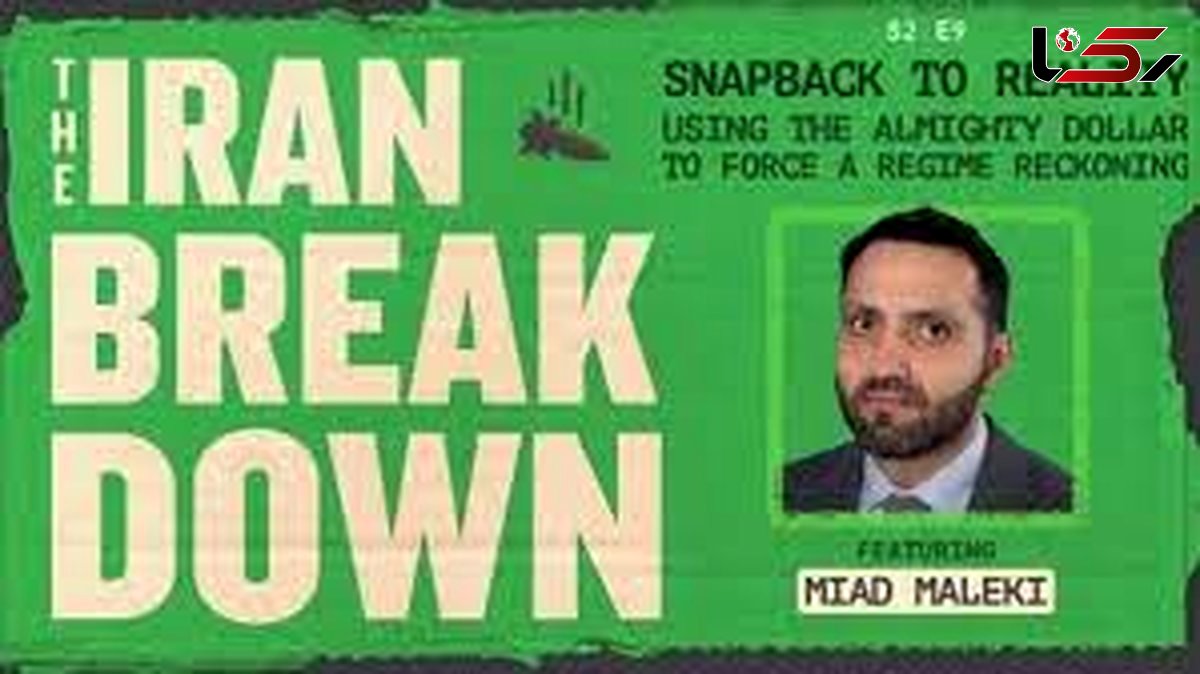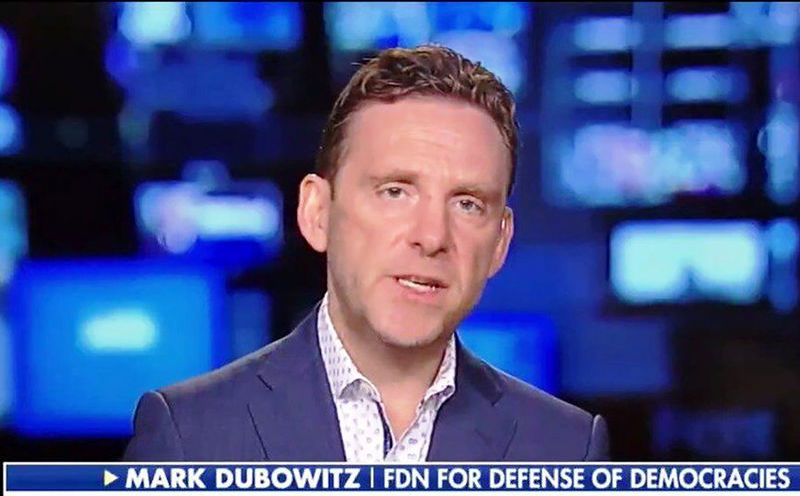Architect of Trump’s Sanctions Against Iran Speaks Out: “Maximum Pressure Was Personal for Me”
Rokna Political Desk: In the latest episode of the podcast The Iran Breakdown, Mark Dubowitz, Director of the Foundation for Defense of Democracies (FDD), hosted Meidad Maleki — a Zionist Baha’i and former official in the first Trump administration. The main focus of the discussion was exploring non-military strategies against the Islamic Republic of Iran and reviving a new model of the “maximum pressure” policy.

Meidad Maleki, who has recently joined FDD as a senior expert, has a strong record at the U.S. Treasury Department. As Deputy Director of the Global Targeting Office at the Office of Foreign Assets Control (OFAC), he was directly responsible for designing and implementing more than 35 sanctions programs against Iran and is regarded as one of the principal architects of the Trump administration’s withdrawal from the JCPOA and the launch of the maximum pressure campaign.
This media appearance marks Maleki’s first official activity at FDD — a presence that Dubowitz used to review the history of sanctions and to outline a new blueprint for intensifying pressure on Iran.
Maleki: Maximum Pressure Was a Personal Motivation
Meidad Maleki, a Zionist Baha’i Jew who emigrated with his family to the United States in the early 2000s and briefly served in the U.S. Air Force, joined the Treasury Department in 2017.
In his first public media appearance on FDD’s podcast, he emphasized that “imposing effective sanctions on Iran has been a personal matter for me, not merely a professional duty.”
According to Maleki, his initial mission at the Treasury was to design a roadmap for exiting the JCPOA while simultaneously developing the maximum pressure campaign. He explained that, by analyzing previous experiences, Trump’s team identified which sanctions had proven effective and which had failed.
Maleki added that although there was initial concern over Europe’s lack of cooperation, it soon became clear that unilateral U.S. sanctions, given the dominance of the dollar and the global economy’s deep ties to the American banking system, could be effective on their own.
During the discussion, both Maleki and Dubowitz stressed that Democrats had sought to change Iran’s behavior by offering financial concessions and economic openings — an approach which, in their view, reflected a “failure to understand the ideology governing the Islamic Republic.”
According to Maleki, the Obama and later the Biden administrations fundamentally lacked an accurate understanding of Iran’s political and economic structure. By contrast, the Trump administration, with complete distrust in the possibility of behavioral change, opted to withdraw from the JCPOA and pursue unilateral sanctions. Through several executive orders and congressional measures, Trump granted the Treasury Department full authority to design and implement these sanctions.
Both Maleki and Dubowitz reiterated that Democrats, including Obama, believed that financial incentives and economic relief could encourage Iran’s leadership toward moderation. But according to Maleki, this was a flawed assumption, since Iran’s leadership was “deeply ideological and unchangeable,” leaving no guarantee of altered behavior.
He argued that this misperception stemmed from a lack of understanding of Iran’s leadership mindset, and that neither Obama nor Biden ever properly grasped Iran’s political and economic structure. Conversely, Trump, with absolute skepticism about change, left the JCPOA and initiated unilateral sanctions — granting the Treasury full authority to implement them through executive orders and congressional approval.

The Pen That Signed the Supreme Leader’s Sanctions
Dubowitz asked Maleki how he concluded that “economic openings” could not change the Islamic Republic’s behavior.
Maleki cited two main reasons:
-
The widespread presence of the IRGC and institutions linked to the Supreme Leader across various sectors of Iran’s economy.
-
The complex and deeply interwoven financial network sustaining Iran’s proxy groups.
According to Maleki, given this structure, the only effective path was to target the Supreme Leader personally, along with institutions directly tied to him and all organizations linked to the IRGC.
For this reason, the U.S. Treasury backed Executive Order 13876, signed by Trump in 2019, which Maleki said should be referred to as “the Supreme Leader’s Executive Order.” This order targeted Iran’s Supreme Leader and anyone associated with or appointed by him. Maleki proudly recalled that the pen used by Trump to sign this executive order is now in his possession.
Why Negotiations Failed
In response to the question of why negotiations between Iran and the U.S. have not led to an agreement, Maleki claimed it was due to the “excessive demands of the Islamic Republic.” According to him, when Iranian negotiators realized the Biden administration was eager for a deal or a return to the JCPOA, they increased their demands, which prevented an agreement.
He repeated this claim regarding indirect negotiations between Abbas Araghchi and Steve Vitkoff, arguing that the same excessive demands led Trump to ultimately reject Iran’s core enrichment program.
At this point, Dubowitz admitted that after this deadlock, “Trump gave the Israeli Air Force the order, or at least the green light, to strike Iran.”
Maleki’s Proposal: More Negotiations, More U.S. Leverage
In conclusion, Meidad Maleki, alongside Dubowitz, argued that Iran has now lost its nuclear leverage, and therefore resorts to threatening the United States with “closing the Strait of Hormuz or Bab al-Mandeb.”
The two Zionist figures emphasized that the Trump administration could once again use the U.S. dollar as a tool to intensify sanctions and place Iran’s economy under renewed pressure. However, this time, they said, Washington must carefully consider the reactions of key players such as China and Russia.
They asserted that such pressure could once again push Iran toward negotiations with the United States — but unlike before, Iran would no longer hold any leverage, enabling Washington to demand greater concessions.
Send Comments